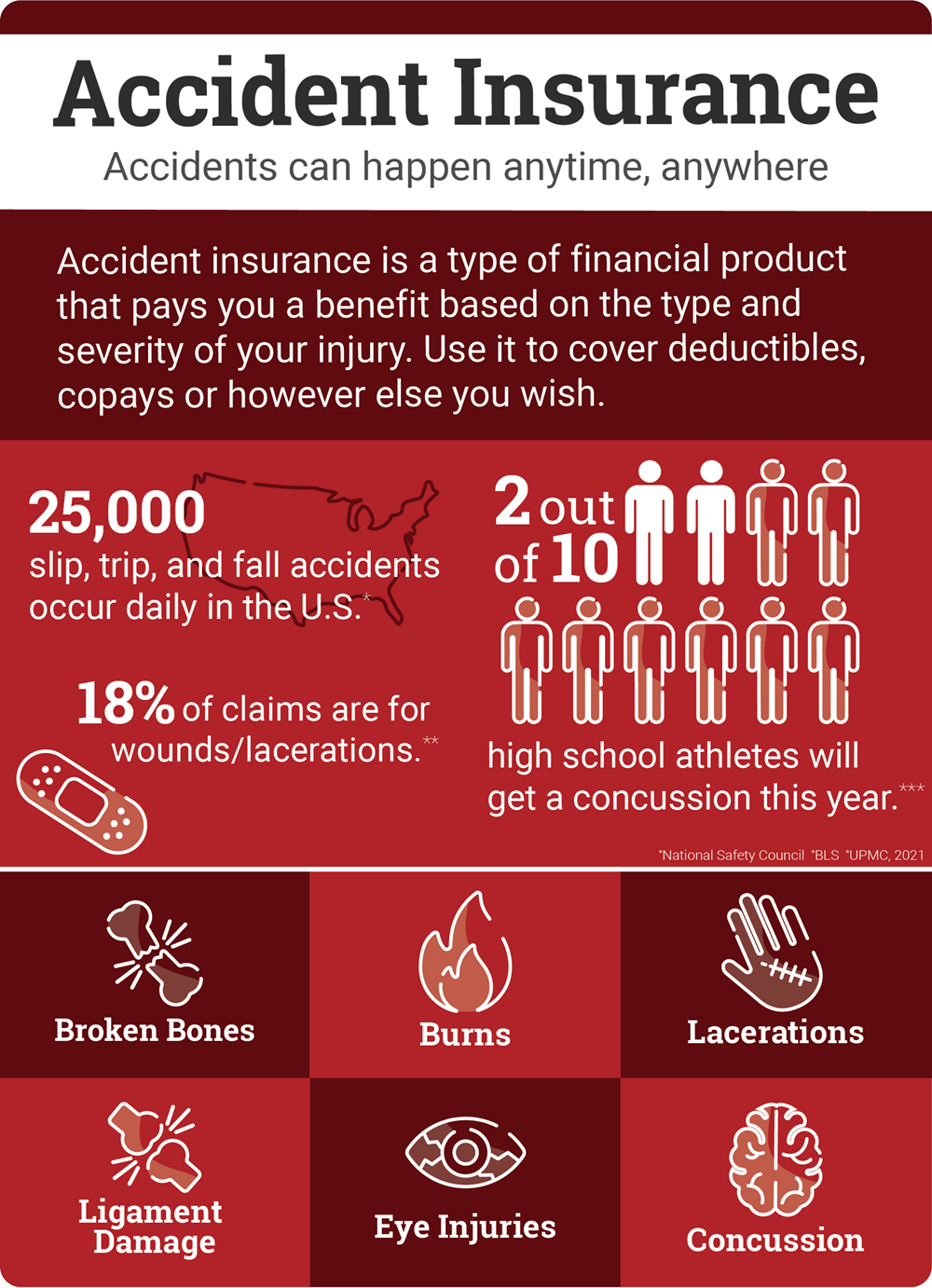Major injuries are painful. But the financial impact of the medical treatment doesn’t have to be.
Accidents happen. You can’t always prevent them, but you can take steps to reduce the financial impact, which is often substantial. Accident Insurance can help cover the out-of-pocket medical expenses and extra bills that can follow an accident (on or off the job) by paying benefits for specific injuries and events resulting from a covered accident.
The total benefit you receive is based on the type of injury, its severity, and the medical services you received in treatment and recovery.
Accident Insurance is a limited benefit policy. This is not health insurance and does not satisfy the requirement of minimum essential coverage under the Affordable Care Act.
The plan pays benefits for a variety of injuries and accident-related expenses, including:
Fractures and Dislocations
- Concussion
- Hospitalization
- Physical Therapy
- Emergency Room Treatment
- Transportation
- and more...
See the product brochure, certificate of coverage and any applicable riders for a list of covered accidents, along with complete provisions, exclusions and limitations.
Accident Plan Features
- Portable Coverage: You can take your policy with you if you change jobs or retire.
- Family Coverage: You can elect to cover your spouse and children.*
- Guaranteed Issue: There are no health questions or physical exams required.
- 24/7 Coverage: Benefits are paid for accidents that occur on and off the job.
- Health Screening Benefit: Provides a $75 benefit for associates and spouses per calendar year if you complete a covered health screening test such as a physical exam, total cholesterol blood test, mammogram, lipid panel, and more. The benefit amount for enrolled dependent children is 100% of the associate amount.
See the product brochure, certificate of coverage and any applicable riders for a list of covered accidents, along with complete provisions, exclusions and limitations.
The policy or its provisions may vary or be unavailable in some states. The policy has exclusions and limitations which may affect any benefits payable.
*If you elect coverage for your dependent children, you must provide notification to your employer when all of your dependent children exceed the dependent child age limit or no longer otherwise meet the definition of a dependent child.
If you elect coverage for your spouse, you must provide notification to your employer if your spouse no longer meets the definition of a spouse.
